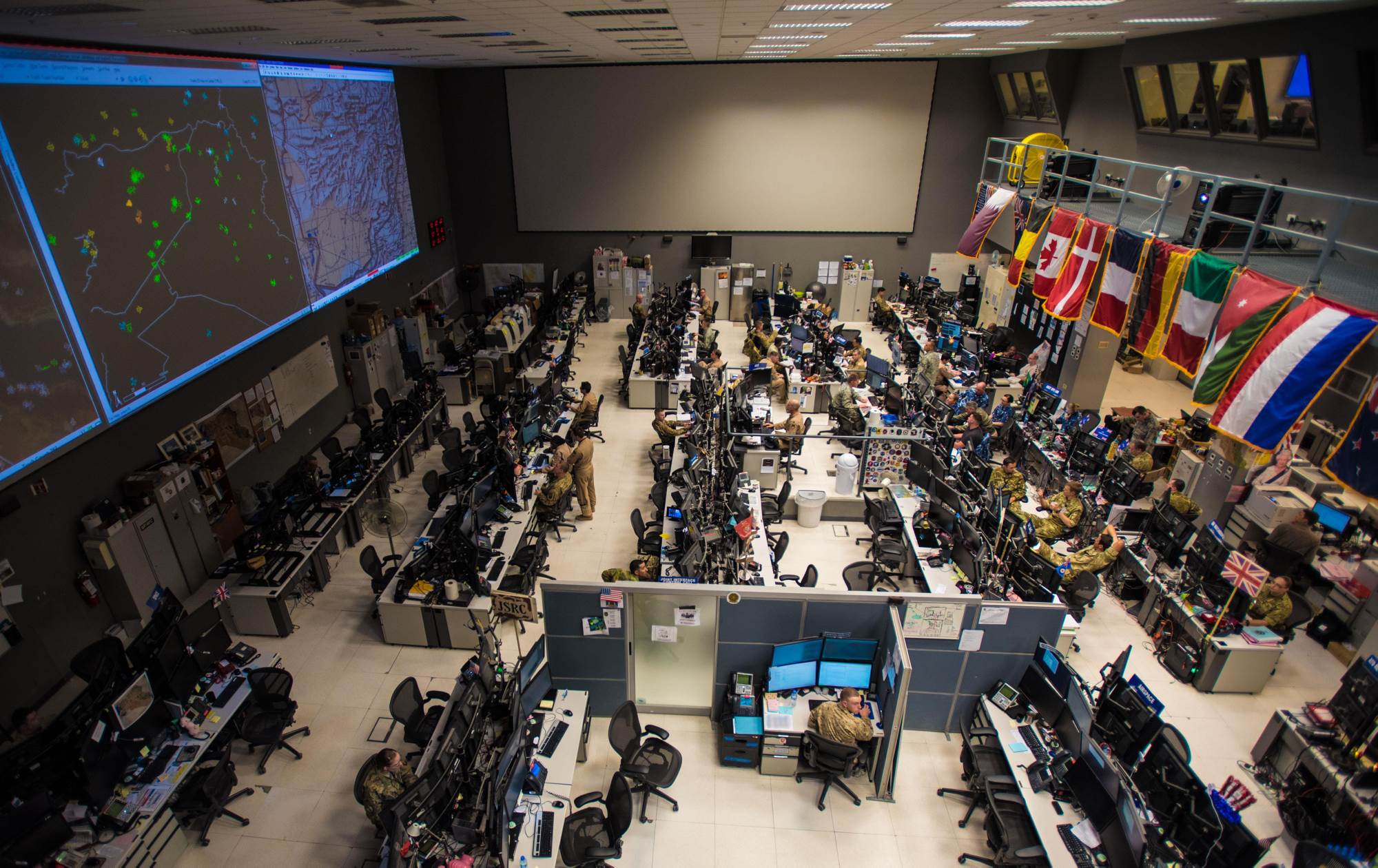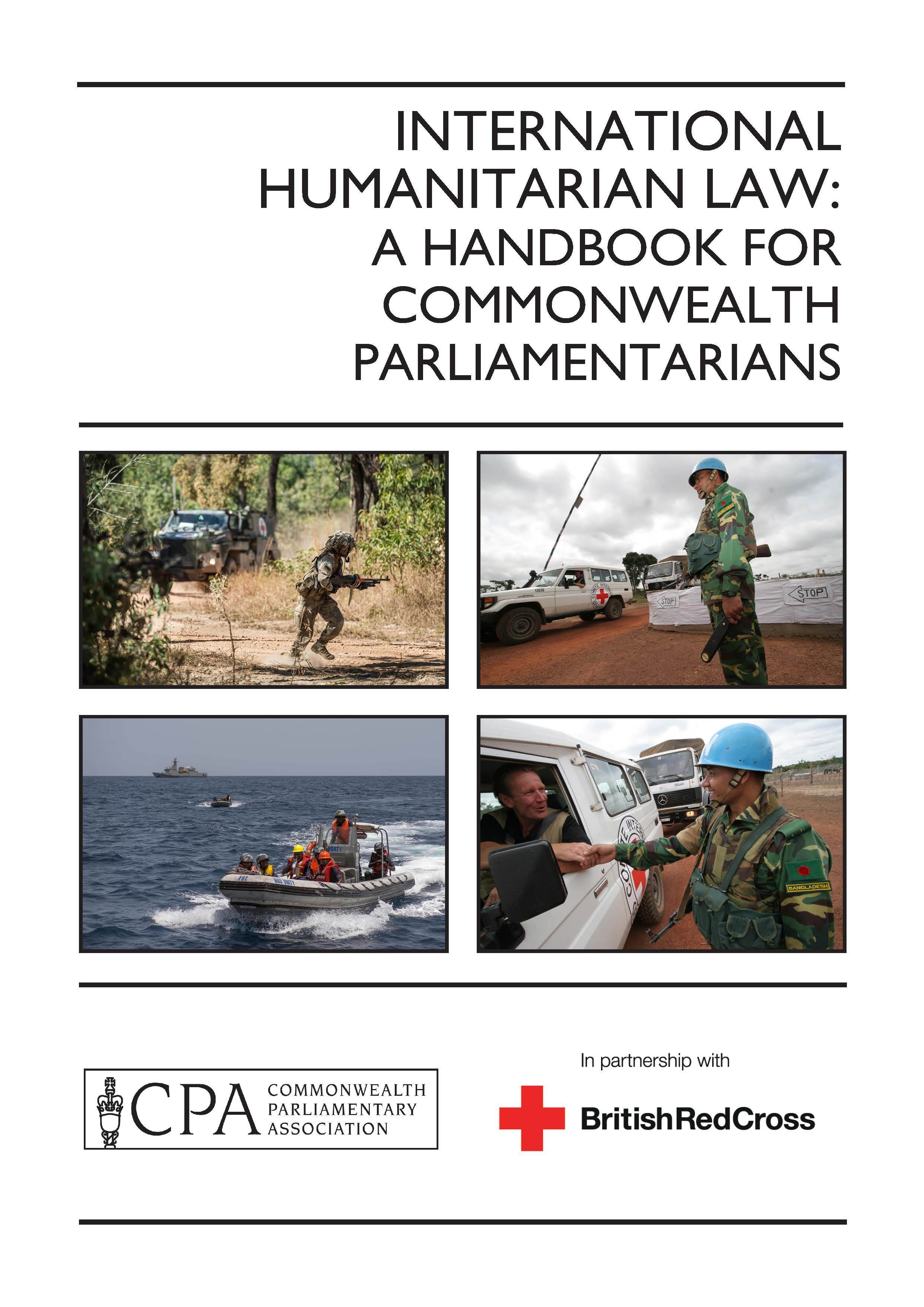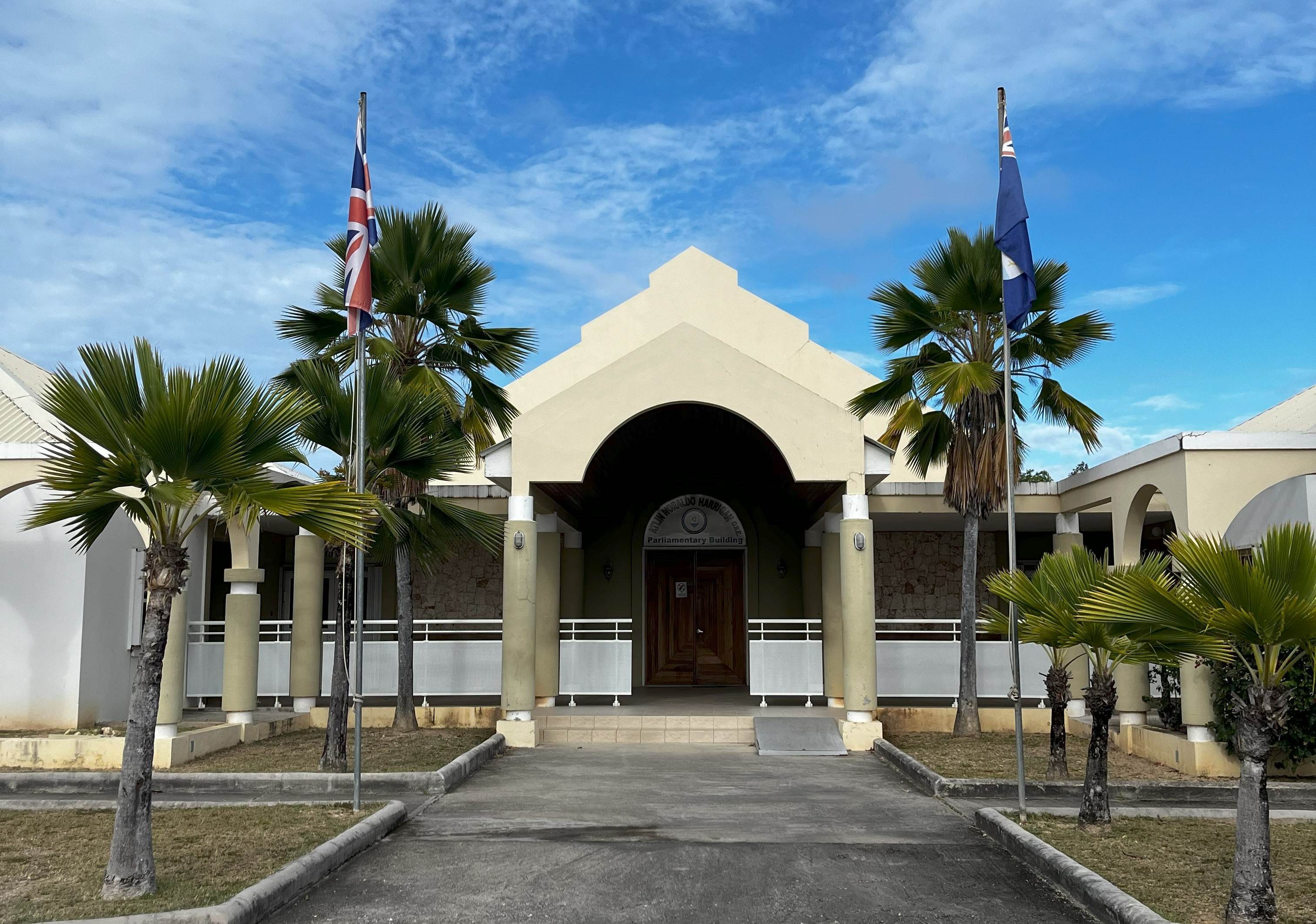
An Appreciation of International Humanitarian Law
The Commonwealth Parliamentary Association (CPA), in collaboration with the British Red Cross, has updated the International Humanitarian Law: A Handbook for Commonwealth Parliamentarians, which looks to assist Parliamentarians in fulfilling their role in upholding International Humanitarian Law (IHL) and in developing their understanding of this vital body of law.
This blog post introduces the Handbook by providing an abridged introduction to IHL and the vital role it plays in the minimising of human suffering. The Handbook is available to download below.
With a history predating even the Commonwealth Parliamentary Association’s 111-year existence, International Humanitarian Law (IHL) is amongst the oldest bodies of modern international law. Whilst the legal system of IHL has, since the Geneva Convention of 1864 and the 1868 St Petersburg Declaration, sought to minimise the unnecessary suffering of those affected by conflict, the importance of upholding IHL has nonetheless been thrown into sharp contrast in recent years.
Indeed, we are living at a time when conflicts are continuing to become increasingly complex, multifaceted and unconventional with the rise of issues around proxy conflicts, hybrid warfare, cybersecurity (and the rise of military technology more generally), and the emergence of violent non-state actors. Simultaneously we are living at a time when our exposure to images and footage of atrocities has never been greater. This over-exposure can simultaneously cause us great distress (indeed there is much evidence to suggest that coverage of conflicts can cause serious mental health difficulties - Time Magazine, Watching War Unfold on Social Media Affects Your Mental Health, 8 March 2022) whilst also tragically (and perhaps paradoxically) de-sensitising us to such material.
Whilst there are no easy answers to the tragedy of conflicts and their impacts on those directly and indirectly affected, a greater appreciation and understanding of IHL, and more importantly a commitment to upholding the legal principles contained within IHL treaties, can help to provide a framework with which to regulate armed conflicts. Whilst such frameworks may not alleviate all of our anxieties and fears, they may go some way towards appreciating that war is not an arena of unrestricted chaos.

Fundamentally, IHL serves to assist armed forces in understanding those actions that are permissible in international armed conflicts (IACs) and non-international armed conflicts (NIACs), as well as those which are expressly forbidden. In establishing such parameters, IHL looks to maintain a balanced approach to two principles: military necessity and humanity.
- Military necessity: IHL recognises that a party to a conflict may be required to use appropriate and necessary force in the pursuit of a legitimate object, whilst also minimising causalities and loss of resources.
- Humanity: IHL forbids unnecessary suffering, injury and/or destruction and protects certain people and objects from engagement.
Whilst IHL is a distinct and distinguished body of law, it does complement and interact with other, equally distinct bodies of law, including international human rights law and international criminal law. Additionally, and importantly for Parliamentarians, IHL will also operate alongside national law, notably constitutional law, military law and criminal law. It is important to recognise that IHL does not operate in a legal vacuum and is a living, breathing body of law.
Furthermore, whilst current events highlight the continued relevance of IHL to global security and whilst IHL only applies directly in the case of IACs and NIACs, it is important to recognise that IHL has continued relevance during peacetime and an ongoing education and appreciation of this legal system can be invaluable.
Whilst, as previously highlighted, coverage of conflict, atrocities, and suffering can leave many feeling helpless, there is much that Parliamentarians can do to ensure the proper implementation and upholding of IHL and, by extension, much that can be done to protect those most at risk from the menaces of violence and conflict. The important contributions that can be made by Parliamentarians towards strengthening IHL are contained within the updated publication International Humanitarian Law: A Handbook for Commonwealth Parliamentarians, a joint collaboration between the Commonwealth Parliamentary Association and the British Red Cross.
Related Resources
Some of the functions that Parliamentarians can undertake in relation to IHL include:
Legislative Functions
- Using parliamentary procedures to encourage the Executive to sign and ratify IHL treaties (a table outlining Commonwealth countries’ ratification, accession and signature of IHL treaties can be found annexed to the handbook);
- Introducing legislation to ensure national laws facilitate adherence to principles and obligations contained within IHL treaties.
Oversight and Budgetary Functions
- Holding officials and departments to account over how armed forces are conducting operations;
- Ensuring key actors are being provided with sufficient education and resources to ensure adherence to IHL.
Leadership and Advocacy Functions
- Educating constituents and the wider public about the importance of IHL and how it should be strengthened and enforced;
- Contributing to the de-politicising of discourse surrounding IHL and ensuring its political neutrality as a key international body of law;
- Establishing cross-party support for IHL, either in Committee or through all-party parliamentary groups;
- Engaging with civil society actors to ensure appropriate action is taken by the Executive in adhering to IHL principles.
Whilst recognising the important role of IHL on the national and international stage, and the contributions of Parliamentarians in strengthening and implementing IHL, there is also value in appreciating what IHL is not designed for.
Crucially, IHL does not govern where there is or is not a legitimate use of force. The 1945 Charter of the United Nations, in combination with customary international law, provides rules on the legitimacy of force (jus ad bellum), though there does of course remain ample scope for consideration of these matters by Parliamentarians and debates on such matters may be some of the most important that many Members will engage in during their parliamentary career.
The illegitimate use of force can lead to illegitimate wars and conflicts which may have ramifications for the status of a country and the wellbeing of the population. As the representative branch of government, it is, therefore, vitally important that Parliaments adequately scrutinise any use of force or intended use of force by the state.
Lessons for Members of Parliament: 5 ways to be an IHL advocate in your Parliament
- Consider how your jurisdiction enters into treaties and the respective role of the Executive and the Legislature.
- Establish which treaties your jurisdiction is party to and what key obligations are contained within that legal instrument.
- Highlight where your state or jurisdiction is not party to a treaty, or has signed but not ratified, and why this may be the case.
- Engage in debates and reviews on accession to treaties and proposed domestic legislation relating to IHL.
- Ensure that any proposed withdrawal from an IHL treaty is subject to parliamentary scrutiny, including requesting information on why there is the proposed withdrawal.
Blog post by James Pinnell, Deputy Head of Programmes - Multilateral Engagement at the CPA Headquarters Secretariat.
For further information about the CPA's work on IHL please email hq.sec@cpahq.org.
Resources and Further Reading:
The below provides an overview of a number of core IHL Treaties and additional international legal instruments.
- Convention for the amelioration of the condition of the wounded and sick in armed forces in the field (First Geneva Convention, GC I) 1949
- Convention for the amelioration of the condition of the wounded, sick and shipwrecked members of the armed forces at sea (Second Geneva Convention, GC II) 1949
- Convention relative to the treatment of prisoners of war (Third Geneva Convention, GC III) 1949
- Geneva Convention on the protection of civilian persons in time of war (Fourth Geneva Convention, GC IV) 1949
- ICRC IHL treaty database
- ICRC national implementation database
- ICRC – e-briefing series
- International Humanitarian Fact Finding Commission
- Treaty ratification kits
- ICRC Customary IHL Study
Podcast | Kwibuka27: Remembrance and Genocide Prevention
What can parliamentary democracies do to remember victims of genocide and prevent future genocides?
To discuss this question, the CPA Podcast heard from Lieutenant-General Hon. Roméo Dallaire, the former Commander of the United Nations Assistance Mission in Rwanda; Hon. Emma Furaha Rubagumya, MP, Rwanda Chamber of Deputies; Dr. Joseph Ryarasa Nkurunziza, Executive Director, Never Again Rwanda and Dr. Kate Ferguson, Co-Executive Director, Protection Approaches to discuss this question.




